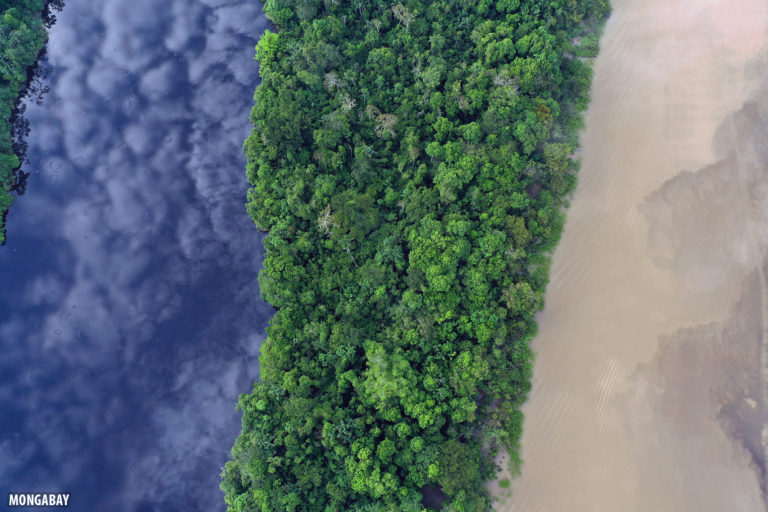Like the rainforest which takes its name, the Amazon is the largest and most biodiverse river on the planet: the Amazon carries more than five times the volume of world’s second largest river — the Congo — and its basin is home to at least 3,000 species of fish. The river and its tributaries are a critical thoroughfare for an area the size of the continental United States and function as a key source of food and livelihoods for millions of people.
Yet despite its vastness and importance, the Amazon faces a deluge of threats: a dam-building spree across the basin is disrupting fish migration and nutrient cycling, large-scale deforestation is destroying habitats and increasing sedimentation, pollution from mining and agribusiness is affecting aquatic ecosystems, overfishing is diminishing the capacity of some species to recover, and drought and flood cycles are becoming more pronounced. The effects of climate change could exacerbate some of these impacts by increasing temperatures, the severity of droughts, and the incidence of fires. The mighty Amazon is looking increasingly vulnerable.

Few people understand more about the Amazon’s ecology and the wider role it plays across the South American continent than Michael Goulding, an aquatic ecologist at the Wildlife Conservation Society (WCS) who has worked in the region since the 1970s studying issues ranging from the impact of hydroelectric dams to the epic migration of goliath catfishes. Goulding has written and co-authored some of the most definitive books and papers on the river, its resident species, and its ecological function.
In recognition of his lifetime of advancing conservation efforts in the Amazon, the Field Museum will today honor Goulding with the Parker/Gentry Award. The Award — named after ornithologist Theodore A. Parker III and botanist Alwyn Gentry who were killed in a plane crash during an aerial survey of an Ecuadorian cloud forest in 1993 — is given each year to “an outstanding individual, team or organization in the field of conservation biology whose efforts have had a significant impact on preserving the world’s natural heritage and whose actions and approach can serve as a model to others.”
